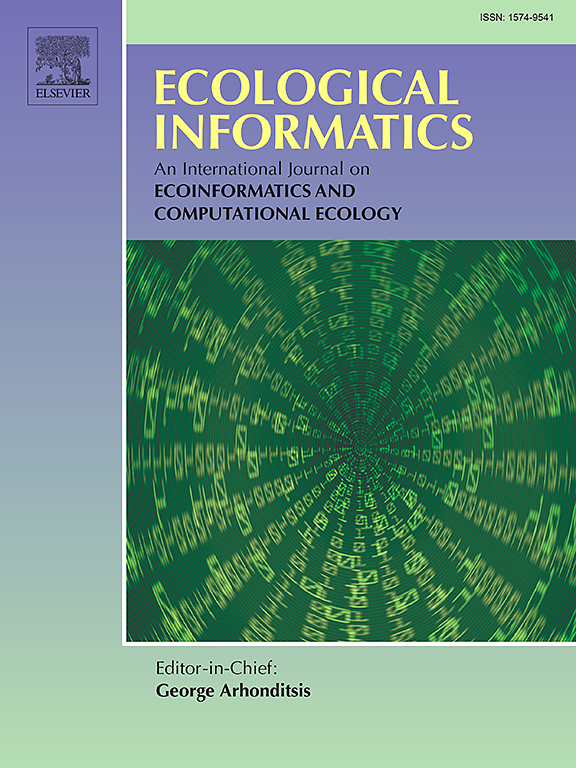Strategic landfill site selection for sustainable waste management in Phu Yen Province, Vietnam using geospatial technologies
IF 5.8
2区 环境科学与生态学
Q1 ECOLOGY
引用次数: 0
Abstract
Solid waste management is a growing global challenge, especially in developing countries such as Vietnam, where rapid urbanisation and inadequate infrastructure intensify environmental and public health risks. Landfilling is one of the most environmentally harmful waste disposal methods. However, it remains widely used in many countries because of its cost-effectiveness. Proper disposal of solid waste is a significant priority for reducing environmental pollution. Selecting suitable landfill sites requires consideration not only of physical and environmental aspects but also of economic and social factors. In Phu Yen Province, located in south central Vietnam, solid waste management faces growing challenges in solid waste management. Limited landfill infrastructure and poor operational standards are already impacting public health and the environment. Moreover, with existing landfills approaching the end of their usable lifespans, identifying new, appropriate sites has become an urgent priority. This study introduces a novel approach that integrates a geographic information system (GIS)-based multi-criteria decision analysis (MCDA) with a fuzzy analytic hierarchy process (Fuzzy AHP) to enhance landfill site suitability assessments. This study's approach enables a holistic evaluation of economic, environmental, topographical, and social factors, thereby ensuring a more comprehensive decision-making process. The findings reveal that 45 % of the study area is very highly or highly potential for landfill sites, 28 % is of medium potential, 27 % is of low or very low potential, and 25.7 % of the existing landfill locations pose significant environmental and human health risks. A spatial distribution map obtained from a comprehensive analysis incorporating economic, social, environmental, and topographical factors helped identify potential future sites for solid waste disposal in Phu Yen Province. The methodology demonstrated in this study is highly transferable and can be applied to other low- and middle-income countries that face similar waste management challenges.
利用地理空间技术在越南富颜省进行可持续垃圾管理的策略性填埋场选择
固体废物管理是一项日益严峻的全球挑战,特别是在越南等发展中国家,在这些国家,快速城市化和基础设施不足加剧了环境和公共卫生风险。堆填是对环境最有害的废物处理方法之一。然而,由于其成本效益,它在许多国家仍被广泛使用。妥善处理固体废物是减少环境污染的重要优先事项。选择合适的堆填区不仅需要考虑物理和环境因素,还需要考虑经济和社会因素。在位于越南中南部的富颜省,固体废物管理面临着越来越大的挑战。有限的填埋基础设施和不良的操作标准已经影响到公众健康和环境。此外,随着现有垃圾填埋场的使用寿命接近尾声,确定新的、合适的地点已成为当务之急。本文提出了一种基于地理信息系统(GIS)的多准则决策分析(MCDA)与模糊层次分析法(fuzzy AHP)相结合的垃圾填埋场适宜性评价方法。本研究的方法能够全面评估经济、环境、地形和社会因素,从而确保更全面的决策过程。研究结果显示,研究区内45%为极高或极有潜力的堆填区,28%为中等潜力区,27%为低或极低潜力区,25.7%的现有堆填区对环境和人类健康构成重大风险。通过综合分析经济、社会、环境和地形因素,得出了一个空间分布图,帮助确定了未来富颜省潜在的固体废物处置地点。本研究所展示的方法具有高度可转移性,可应用于面临类似废物管理挑战的其他低收入和中等收入国家。
本文章由计算机程序翻译,如有差异,请以英文原文为准。
求助全文
约1分钟内获得全文
求助全文
来源期刊

Ecological Informatics
环境科学-生态学
CiteScore
8.30
自引率
11.80%
发文量
346
审稿时长
46 days
期刊介绍:
The journal Ecological Informatics is devoted to the publication of high quality, peer-reviewed articles on all aspects of computational ecology, data science and biogeography. The scope of the journal takes into account the data-intensive nature of ecology, the growing capacity of information technology to access, harness and leverage complex data as well as the critical need for informing sustainable management in view of global environmental and climate change.
The nature of the journal is interdisciplinary at the crossover between ecology and informatics. It focuses on novel concepts and techniques for image- and genome-based monitoring and interpretation, sensor- and multimedia-based data acquisition, internet-based data archiving and sharing, data assimilation, modelling and prediction of ecological data.
 求助内容:
求助内容: 应助结果提醒方式:
应助结果提醒方式:


